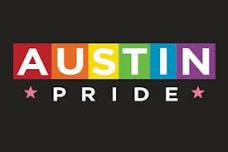by Arely González
When I first started doing research on my interviewee, Dennis Medina, I was really excited to see that he was from the small city of La Joya in Rio Grande Valley because that is only about 30 minutes away from my hometown. So, although he is older than me, I figured we would have very similar experiences. I found myself comparing and contrasting our experiences while conducting the interview and found a lot more similarities than differences. It was truly inspiring to hear about where he started and all of his accomplishments, since we come from very similar backgrounds.

Growing up in the Valley, the LGBTQ community was never talked about–if anything, it was talked badly about. I think due to the deeply rooted Hispanic culture and their Catholic religion, the older generation is not quite as open-minded. It was very insightful hearing Dennis Medina’s experiences and how he overcame a lot in order to organize for what he believed in. He is a very important activist in the city of Austin and one of the organizations he helped found, ALLGO, is still running strong 35 years later. A strong takeaway I got from talking to Dennis Medina is that if you want something, you’re going to have to struggle for it and to not be satisfied with being comfortable.

I came into this class very clueless about the topic, but also very open minded. I had always been interested in learning about the LGBTQ community, especially in Austin, because of how much more representation there is here compared to where I am from in the Rio Grande Valley. As naive as it sounds, before I took this class, I thought the LGBTQ community was mainly focused on being social. Coming to Austin, I had heard about the gay bars on 4th street and Austin Pride that happens every year. I never really stopped to think about why these events and places were located in Austin, and the true impact of them in our city. I did not realize these events were here because of the long history of activism that has taken place in Austin. Austin has been labeled the gay capital of the country because of the organizations created and activism that take place here, which allow many people to celebrate how far we have come and continue fighting for important issues.
When I first realized that I was going to have to conduct an oral interview for one of the major assignments, I was very close to dropping the class. I am a very anxious person and just the thought of interviewing someone, which I had never done before, made me very nervous. I really thought I would not be able to do it. However, I am really glad and proud of myself for not dropping the class just because of that reason. As the class went on, I got more and more comfortable with the idea of interviewing someone, and I think a big part of this was because I was becoming more educated on the topic. I eventually felt more qualified to interview someone who had played such a big part in this community. While it got closer to the time of conducting this interview, I realized that it was nothing worth worrying about. It would just be a normal conversation taking place between me and somebody else, which is exactly what it was.
Going through the readings during the first part of class was very informative. I didn’t truly realize the fight that many people had to go through to get this community where it is today. It’s one thing to read about it and another to hear it firsthand. Because of this I was very excited that I would be able to talk to somebody that majorly contributed to this fight. It was very easy to talk to Dennis and it was a lot less nerve wracking than I expected. I was too fascinated in learning more about him to be nervous. Although I prepared a lot for this interview by writing questions, doing research and even conducting practice interviews on people, I realized while conducting the oral history interview that it was a lot easier to ask questions based on what he was telling me at the time rather than trying to read the ones I had prewritten. I wanted to know more about the things that I couldn’t find on the internet and what I didn’t do research on.

My name is Arely González and I was born and raised in the Rio Grande Valley, the southernmost region of Texas. I am currently a senior at the University of Texas at Austin, majoring in biology and minoring in business.
